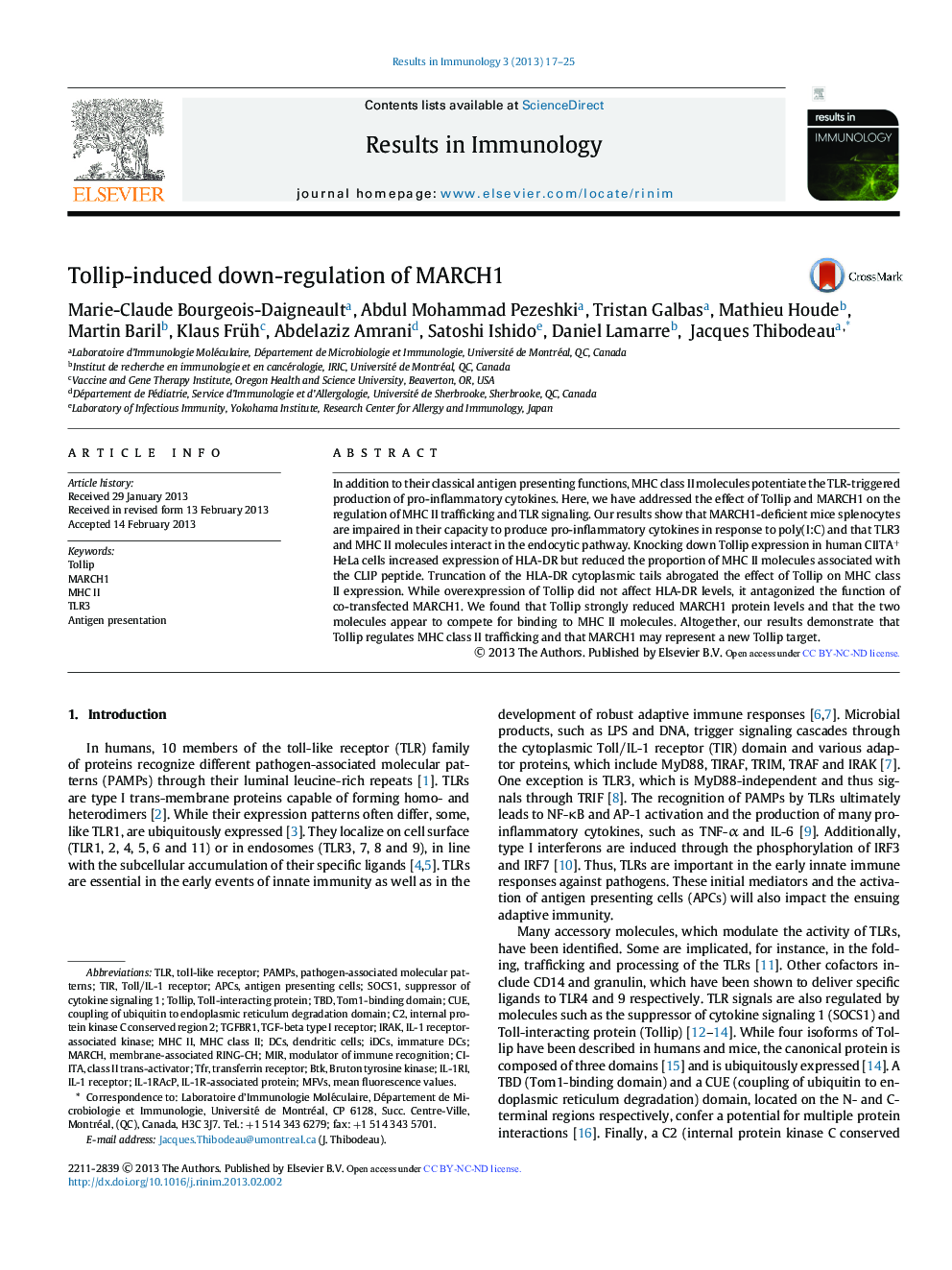| Article ID | Journal | Published Year | Pages | File Type |
|---|---|---|---|---|
| 2202364 | Results in Immunology | 2013 | 9 Pages |
In addition to their classical antigen presenting functions, MHC class II molecules potentiate the TLR-triggered production of pro-inflammatory cytokines. Here, we have addressed the effect of Tollip and MARCH1 on the regulation of MHC II trafficking and TLR signaling. Our results show that MARCH1-deficient mice splenocytes are impaired in their capacity to produce pro-inflammatory cytokines in response to poly(I:C) and that TLR3 and MHC II molecules interact in the endocytic pathway. Knocking down Tollip expression in human CIITA+ HeLa cells increased expression of HLA-DR but reduced the proportion of MHC II molecules associated with the CLIP peptide. Truncation of the HLA-DR cytoplasmic tails abrogated the effect of Tollip on MHC class II expression. While overexpression of Tollip did not affect HLA-DR levels, it antagonized the function of co-transfected MARCH1. We found that Tollip strongly reduced MARCH1 protein levels and that the two molecules appear to compete for binding to MHC II molecules. Altogether, our results demonstrate that Tollip regulates MHC class II trafficking and that MARCH1 may represent a new Tollip target.
•Splenocytes from MARCH1- and Ii-deficient mice are impaired in cytokine production following TLR stimulation.•MHC class II molecules bind TLR3.•Tollip regulates endocytic trafficking of MHC II proteins and chaperones.•Tollip binds MHC II molecules
